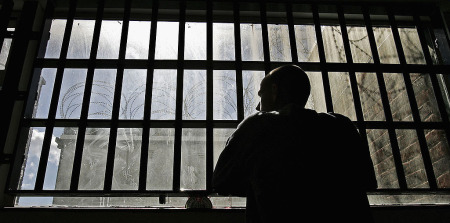California spent over $4 million on fake vagina surgeries, breast implants for trans inmates

California has spent more than $4 million of taxpayer money on sex-change surgeries and other elective cosmetic surgeries for inmates who self-identify as the opposite sex, according to a recent report.
Beginning in 2017, the state became the first to pay for prisoners to undergo body-altering surgeries.
According to The Washington Free Beacon, California has spent around $4 million on these procedures for 157 inmates from 2017 through mid-July of this year. Four of those inmates were on death row.
California spent $2.5 million on vaginoplasties for 35 male prisoners, $180,000 on breast implants for 11 male inmates and $184,141 on facial feminization surgery for two male inmates.
In addition, 69 male inmates underwent laser hair removal for a cost of $224,000 and over $1 million was spent on elective double mastectomies for female prisoners.
This past summer, the state corrections department received 1,000 petitions from inmates looking to alter their sex, according to records obtained by The Beacon.
The state agency reportedly doesn't place any limits on the types of procedures inmates can request if they want to identify as the opposite sex, and it handles these requests on a case-by-case basis.
As budget documents shared by the outlet revealed, officials at the California Department of Corrections and Rehabilitation requested more than $2.2 million in new funds for elective cosmetic procedures for trans-identifying inmates. The funds would also cover hiring new staff, including a part-time surgeon and two additional full-time senior psychiatrists.
"People who think they're transgender have rights, and they should be treated with dignity and respect, but it does not include taxpayer dollars being used to do surgeries that are experimental at best and scientifically unjustified at worst," conservative attorney Harmeet Dhillon told the Beacon.
In a Tuesday X post, Dhillon noted that California prisons don't include root canals on the back teeth in their dental services for inmates, but they will fund “trans cosmetic procedures and vaginoplasty” surgeries for trans-identifying prisoners.
“Bad use of tax dollars,” she wrote.
As Cal Matters reported in June, the California Department of Corrections and Rehabilitation found that the number of prisoners who identify as trans or non-binary has grown each year. In 2022, the number rose to 1,617, a 234% increase over 2017.
In 2017, California funded the first sex-reassignment surgery on an inmate when it performed the controversial procedure for 57-year-old convicted murderer Shiloh Heavenly Quine.
Kris Hayashi, executive director of the Transgender Law Center, told the Los Angeles Times in an interview shortly after Quine's surgery that it was a victory “for all transgender people who have ever been denied the medical care we need.”
"For too long, institutions have ignored doctors and casually dismissed medically necessary and life-saving care for transgender people just because of who we are," said Hayashi.
In 2020, California passed Senate Bill 132, which took effect in 2021 and allowed biological men who identify as female to request a transfer to a women's prison.
During The Christian Post's "Unmasking Gender Ideology" event in March, Amie Ichikawa, a former inmate who heads the Woman II Woman prison advocacy group, said SB 132 caused conditions at Central California Women's Facility in Chowchilla to deteriorate rapidly.
In a bonus episode of CP's podcast series, "Generation Indoctrination: Inside The Transgender Battle," Ichikawa recalled feeling "helpless" during her incarceration when men first began being allowed to be housed with women.
"Just to know that you have absolutely no control of your environment, your own physical wellbeing, your mental health, nothing. And there's really no one you can talk to about it," she said.
"It's so unbelievable that I would call home every day crying for weeks, trying to explain to my family that there was a serial rapist housed here. And that this is legal, that the state really did it."
Samantha Kamman is a reporter for The Christian Post. She can be reached at: samantha.kamman@christianpost.com. Follow her on Twitter: @Samantha_Kamman





















